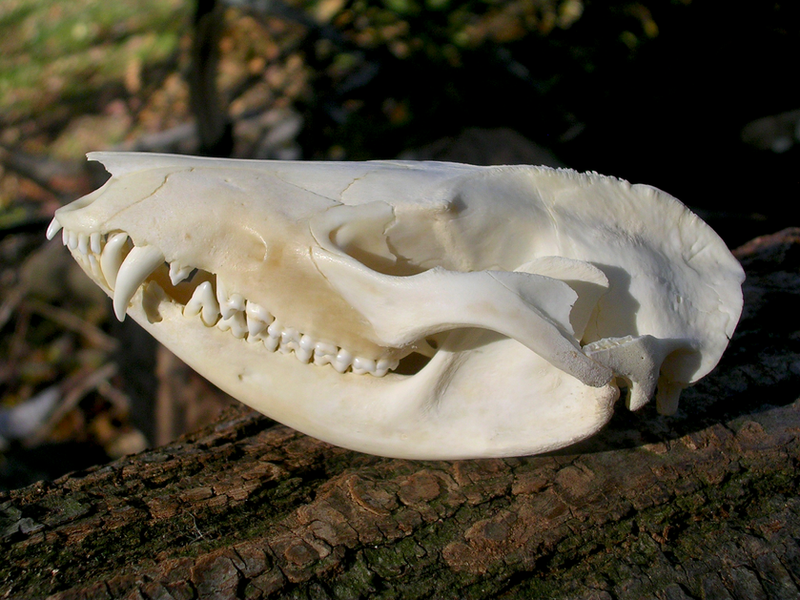
Virginia Opossum Skull by FossilFeather on DeviantArt
In terms of size, this particular specimen is just over 5 inches long. Based on A Key-Guide to Mammal Skulls and Lower Jaws by Aryan Roest, opossums have "medium" skulls between 3 and 6 inches long. Roest's guide also describes opossum teeth as including large prominent canines and 5 incisors on either side of the front of the mouth.

Opossum skull, real bone, available for purchase at natur.
What was its role? Herbivore vs. Carnivore vs. Omnivore By looking at the teeth (or the remaining teeth) in the skull you can determine whether the animal was an herbivore, carnivore, or an omnivore. Each possesses distinct variations in their teeth that you can analyze to determine what its role was in the environment.

possum skull
Browse 20+ possum skull stock photos and images available, or start a new search to explore more stock photos and images. Sort by: Most popular Opossum (Didelphis virginiana) Skull - Lateral View Animal skull collection - vintage engraved illustration Vintage engraved illustration isolated on white background - Animal skull collection

Replica American Opossum Skull For Sale Skulls Unlimited International, Inc.
Muntjac deer. Muntjac deer skulls can be identified by their large suborbital pits - the bones that sit under the eye sockets. Males have prominent tusks too. Fox skull by Charlotte Varela. Red fox. Fox skulls have long, narrow snouts and are around 14cms in length. Badger skull by Charlotte Varela. Badger.

45/8 by 21/2 inches Real North American Opossum Skull for Sale, Possum,
Skulls is a beautiful spellbinding exploration of more than 300 different animal skulls—amphibians, birds, fish, mammals, and reptiles—written by New York Times bestselling author, Simon Winchester .
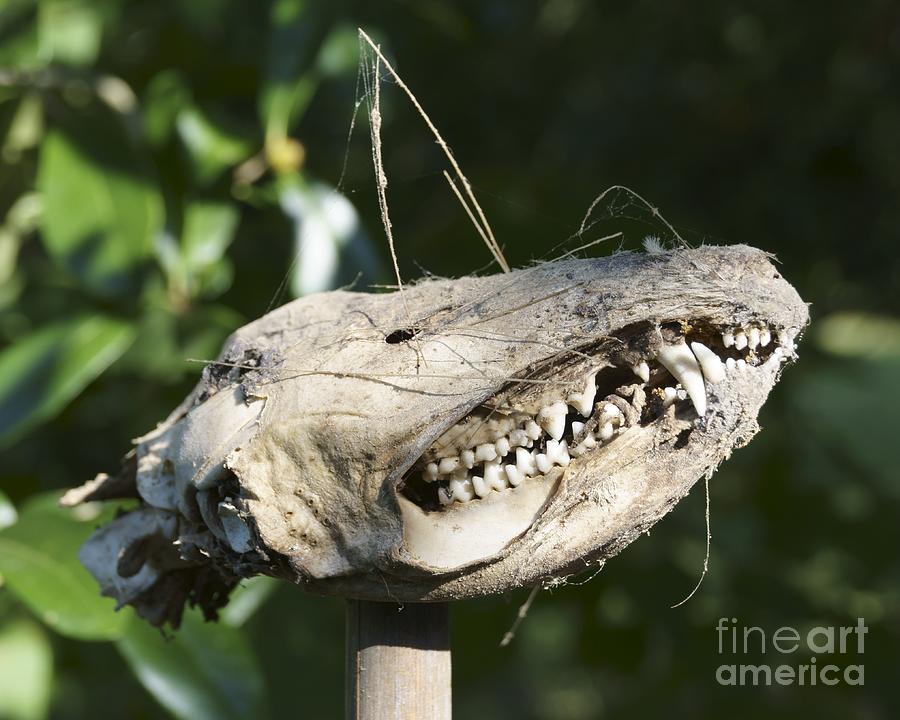
Opossum Skull on a Stake Photograph by MM Anderson
The skull of the Virginia opossum is characterized by a snout that is wider than the braincase and a pronounced sagittal crest. The dental formula for Didelphis virginiana (and all other didelphids) is i 5/4, c 1/1, p 3/3, m 4/4.

41/4 inches Authentic Possum Skull, Opossum Skull for Sale
Unique Skeletal Features Bone Structure Similarities to Small Mammals Distinctive Skull Shape and Teeth Unique Spine Characteristics Opossum Tail's Role in Balance and Sensation The Significance of Opossum Skeletons Frequently Asked Questions How Do Opossums Use Their Tails for Balance and to Feel Things While Moving?
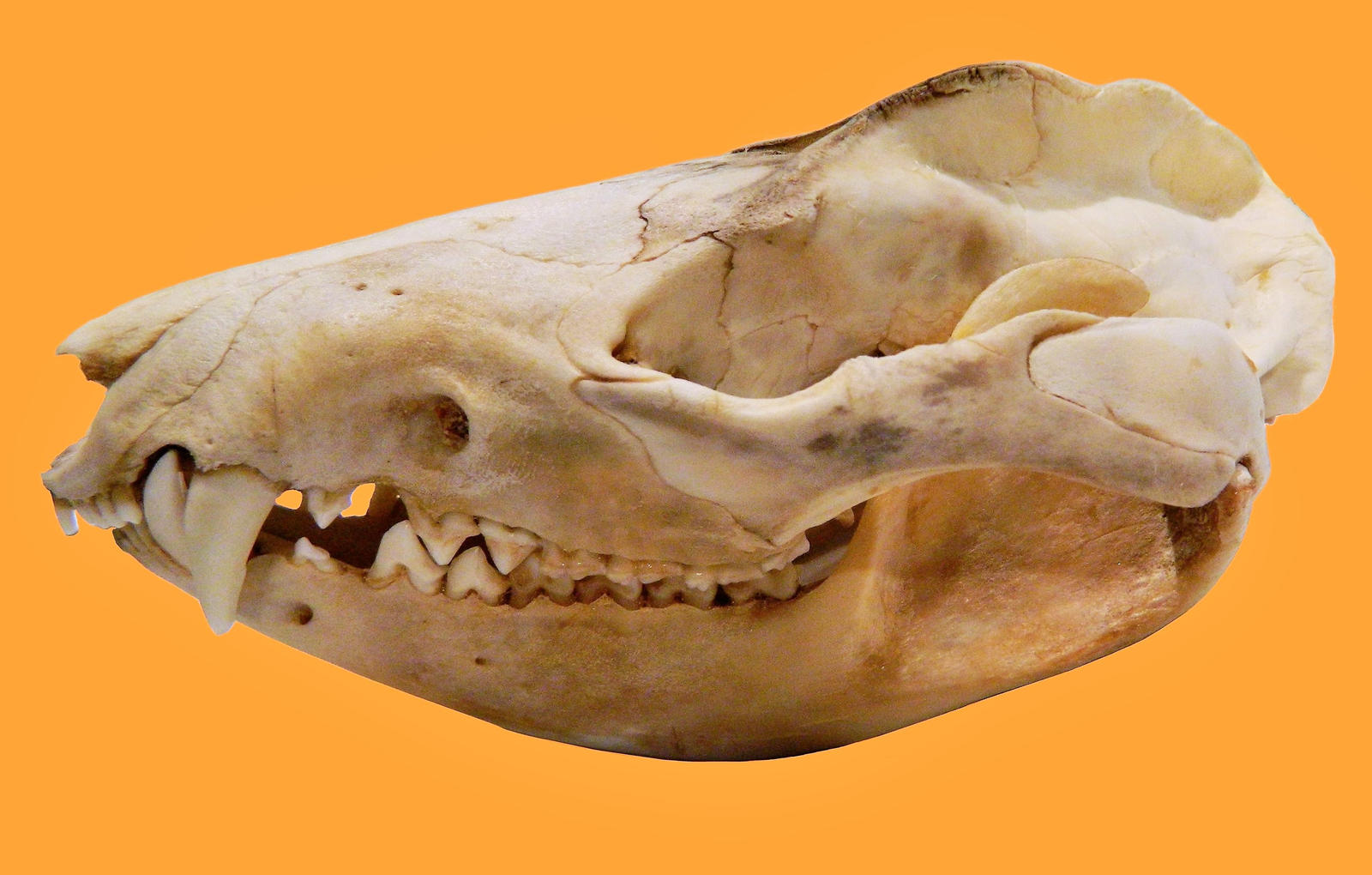
Opossum Skull Stock by LEXLOTHOR on DeviantArt
Opossums are small marsupials that live in North America. They are the only animal native to North America that carries their young in a pouch. Opossums have a unique facial structure, with a long cone-shaped mouth/nose. Let's look closer at the opossum skull and opossum skeleton. Table of Contents Opossum Bones Opossum Skeleton Anatomy

Anatomy Photograph Virginia Opossum Skeleton by Millard H. Sharp Skeleton tattoos, Opossum
Common opossums ( D. marsupialis) are found throughout much of Central and South America and the Caribbean. They are characterized by a thick coat of fur, sharp claws, long whiskers, long tail, and black ring around both eyes as well as large black ears.
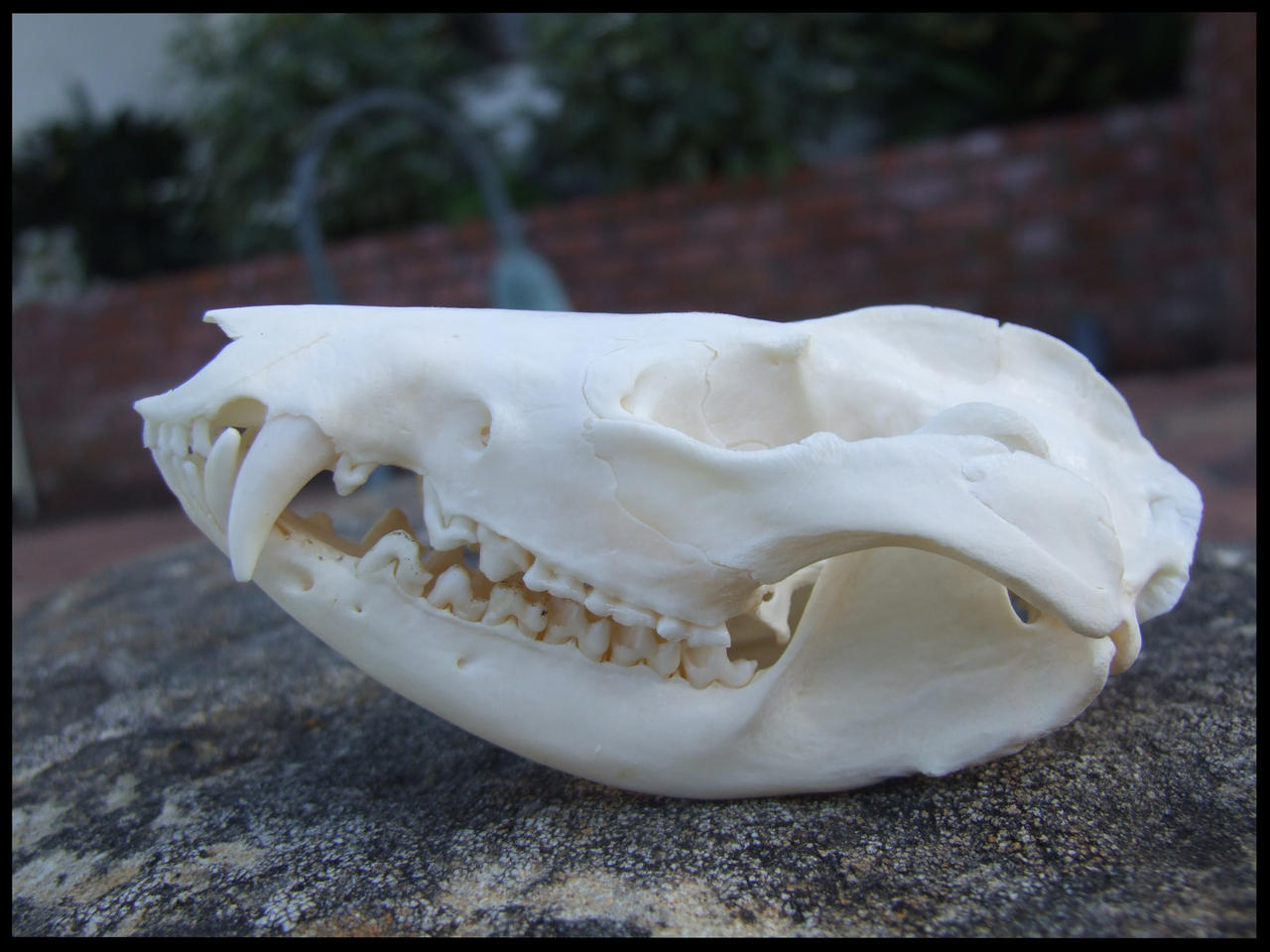
Opossum Skull 2 by Lupen202 on DeviantArt
New data from the skulls of both Mimoperadectes and Herpetotherium included in our phylogenetic analysis indicate the appearance of this. classification of these and of the Cretaceous and Paleogene New World and European metatherians. In: Archer M, editor. Possums and Opossums: Studies in Evolution. Vol. 1. Chipping Norton: Surrey Beatty.

Opossum Skull Animal skulls, Skull, Skeleton anatomy
An opossum's skull is characterized by its larger dental formula and small basicranial region . The most prominent feature of an opossum skull is the large, protruding mandible that houses 50 different teeth—a trait not found in any other mammal. The anatomy of an opossum skull typically consists of the following parts: Skull Orbital Cavity
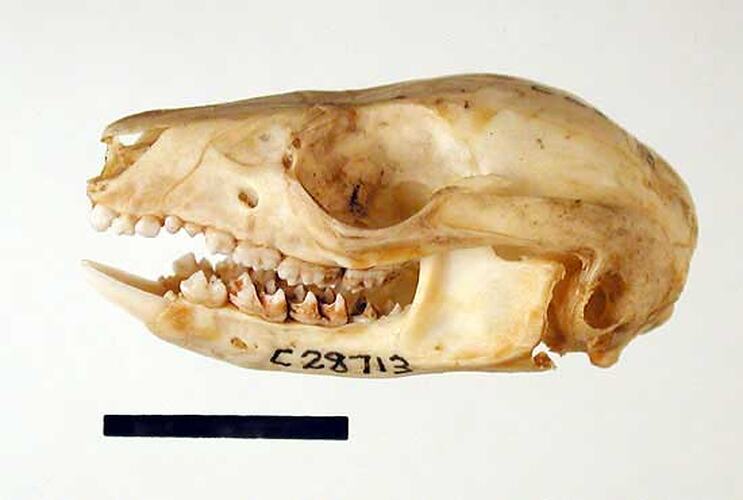
Pseudocheirus peregrinus (Boddaert, 1785)
Objectives Identify the bones and important features of the mammal skull. Distinguish among monotreme, marsupial, and placental mammal skulls based on morphology. Explore the evolution of the sense organs, with a focus on the auditory system. Study the major morphological differences within the mammalian clades Rodentia and Carnivora. Overview
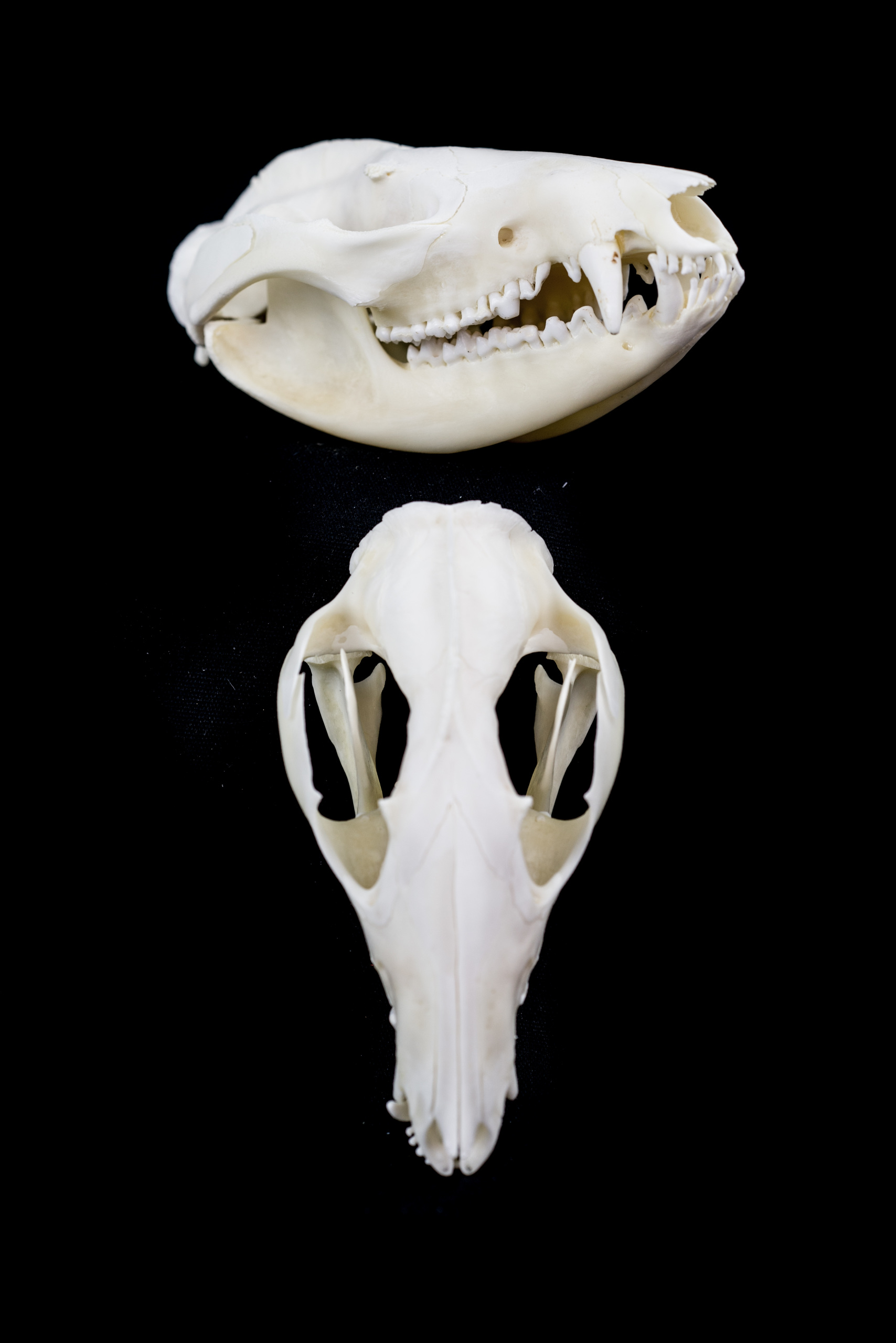
Opossum Skull
Based on fossil evidence from the skull and two skeletons, the study's authors concluded the evolutionary split between the ancestor of opossums and the ancestor of all other living marsupials.

Real Opossum Skull for Sale at Worldwide Wildlife Products 19.99
Welcome back! My last blog looked at eye placement and whether animals were hunters or hiders. Now let's take a look at some more ways to identify skulls. Skulls from left to right; opossum, bobcat, beaver, deer, gray fox, raccoon Let's say we saw the skull below down by a lake. We look at the large, clipper-like incisors and flat molars.

Dave's ACT Common Brushtail Possum Skull
Uncovering the ancient origins of modern opossum by Bill Kanapaux • December 15, 2009 Research News A Florida Museum researcher has co-authored a study tracing the evolution of the modern opossum back to the extinction of the dinosaurs and finding evidence to support North America as the center of origin for all living marsupials.
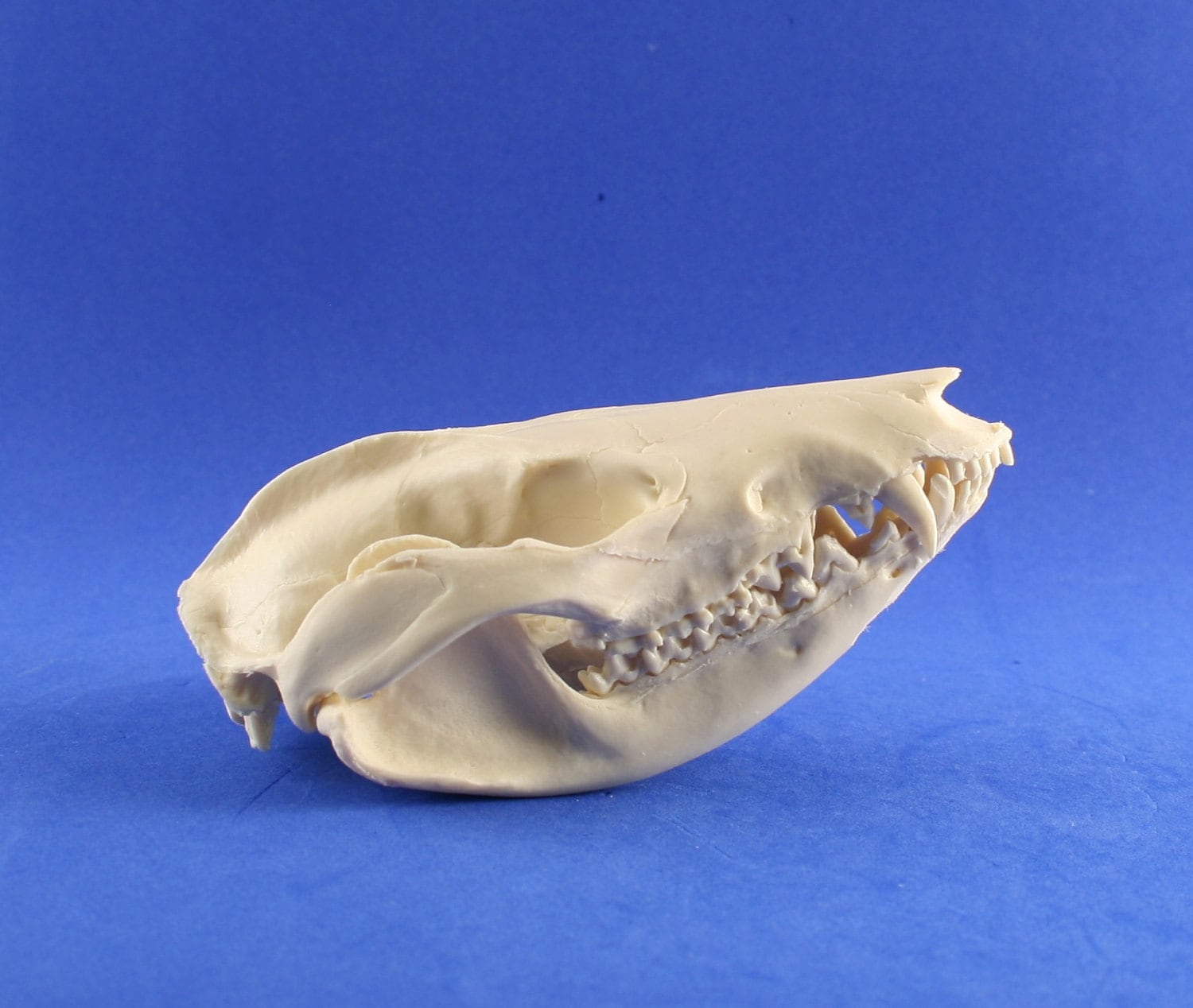
handmade replica possum skull
Description of the Opossum. Most opossums are around the size of a housecat. These marsupials have an elongated snout, and a large sagittal crest - a bone making their forehead look taller. They have scaly feet, and a scaly prehensile tail. A prehensile tail can be wrapped around branches to stabilize the animal while climbing.